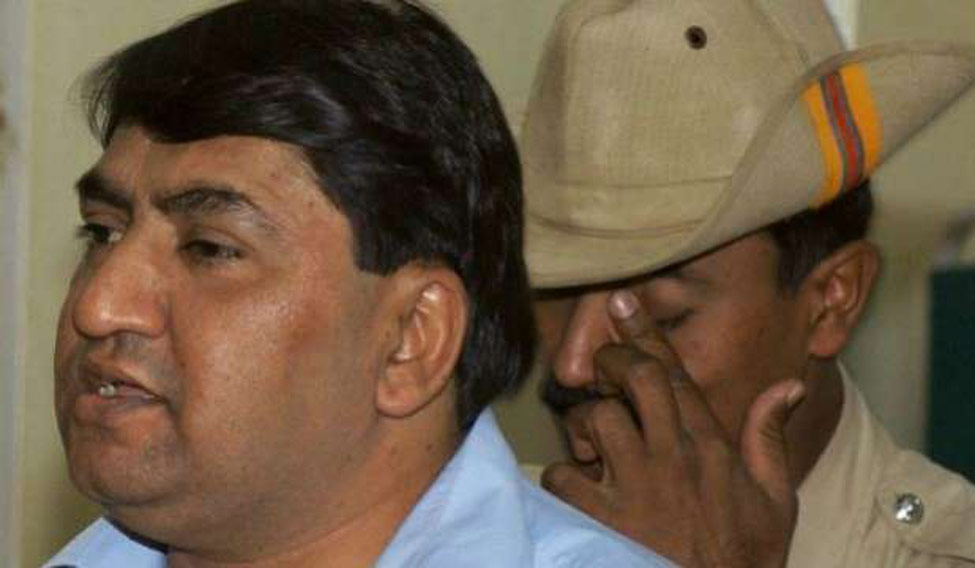Only a few scams created such strong ripples in Maharashtra politics as the stamp paper racket did after its kingpin Abdul Karim Telgi alleged during a narco test that NCP supremo Sharad Pawar, then a Union minister, and former state deputy chief minister Chhagan Bhujbal received money from him.
The narco test became redundant after Telgi recorded his statement before a chief judicial magistrate, where there was no mention of either Pawar or Bhujbal.
In the videotape of the 2003 narco-analysis test, aired by TV channels in 2006, Telgi claimed to have made payments to them.
The CBI, after it took over the case from the state's special investigation team, listed in a chargesheet those named in the later confession, including present BJP MLA Anil Gote and former Mumbai Police commissioner R.S. Sharma.
The SIT had submitted reports of the narco-analysis test and brain mapping conducted on Telgi to the Maharashtra Control of Organised Crime Act (MCOCA) court overseeing the Telgi cases.
The reports had claimed that Telgi paid Rs 22 lakh to Sharma and also named several high-profile partners and beneficiaries in the scandal.
In 2006, Gote had demanded that Pawar and Bhujbal be made to undergo the narco-analysis test, based on Telgi's claims.
"I was arrested because Telgi had been a guest at my function. Therefore, one wonders what stopped the SIT to take action against Pawar, who had been to a function organised by Telgi at Khanapur in 1994," Gote had said.
Pawar had asserted that he had never met Telgi.
Terming the reports as "irresponsible and baseless", Pawar had said "there is no need to take any cognisance of what a criminal has said".
Bhujbal, who was deputy chief minister when the fake stamp paper scam came to light, had claimed that Telgi was resorting to such actions to "take vengeance" as he was the one responsible for unearthing the scam.
Gote, a former journalist, was accused of being a close associate of Telgi and having used his political clout to get him his first stamp vending licence.
"The allegations were baseless. I spent four years in jail and represented my own case in the court. If there was any truth in those claims, I would have been convicted by now," says Gote.
Telgi literally minted money by printing fake stamp papers worth crores of rupees using printing machines bought illegally with the help of some officials of the central government's security printing press in Nashik.
It is estimated that fake stamp papers, worth crores of rupees, were sold across seven states between 1995 and 2003 as part of the scam.
Telgi's father was an employee in the Railways, and, after his death, as a youth he sold fruits at the Khanapur station in Karnataka to support his family and raise money for his education.
Telgi completed his B.Com from a college in Belgaum before moving to Saudi Arabia and seven years later came to Mumbai to work as a travel agent and in a guest house in Colaba.
He was arrested in 1991 by Mumbai police for cheating. In 1994, Telgi acquired a stamp paper licence and befriended people in revenue department, stamp office and Nashik Security Press where the stamp papers were printed.
He allegedly used his political connections to get the machinery at the Nashik press declared as 'junk' and bought it as the highest bidder.
After obtaining the original dye for printing allegedly in connivance with some Nashik press officials, Telgi began printing fake stamp papers.




